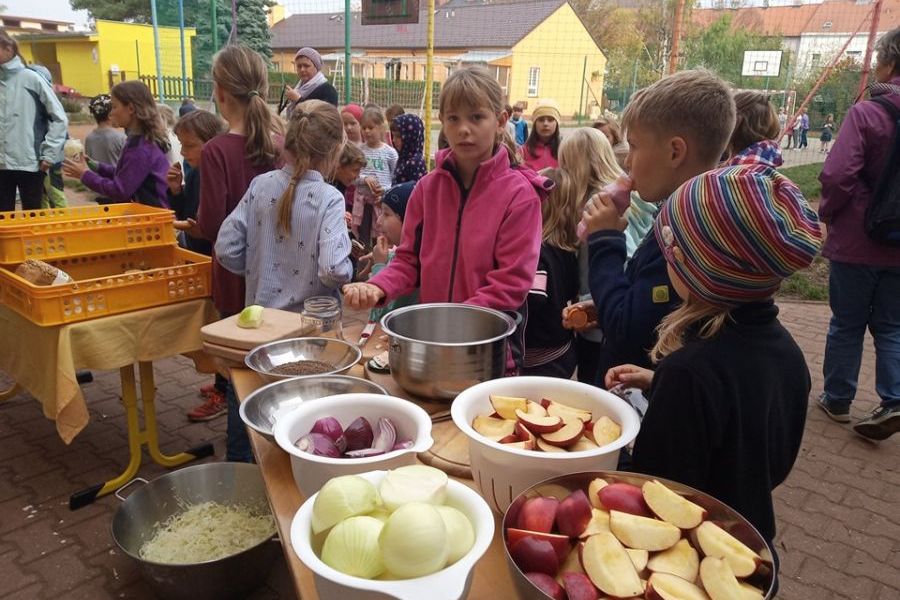
The problem
The problem addressed by this action was the lack of public awareness of sustainable municipal operations. Because people do not have enough information, they cannot advocate for a greener operation of their municipality. People are often unaware of the opportunities and benefits of living in a municipality that not only focuses on the economic part of its operation, but also thinks about the environmental part. Hostětín is an example of such a municipality.
The solution we used
In this activity, the students went step by step through: consumption, processing and distribution, and even food production. Thanks to a trip to a village that is both economically and ecologically sustainable, Hostětín, the pupils of our school were able to get to know all the basic principles of this village. Stages of implementation: - Students are transported to the site - Excursion to the selected village (students can visit, for example, the orchards, the root water treatment plant, the municipal heating plant) - Preparation of a report that discusses the newly acquired experience - After the excursion, the knowledge from the excursion can be further used in education (topics for essays)
Implementation
To find sustainable communities, pupils will either use the website or, if they have good experience with a local producer or community, and provided they agree, a visit to their business or community will be preferred. By buying and using products from that community, they will support its competitive ability in the food market and make it more visible. They will all be transported to the village by bus or train. They will then divide into 2 or more groups (depending on the number of students, and guides) to ensure a more intense and intimate experience during the excursion. After the excursion, students are seated in a room where they can interact with their classmates and develop their own sustainable project proposals from the newly acquired information. Most students enjoyed the field trip and were excited not only about their newfound experience, but also the opportunity to purchase tasty and organic produce. Positive impacts: - Introducing students to ways in which a community can be sustainable - Increased student interest in discussing sustainability.
